CMN 100
Professional Health Communication

1. Course Description
This workshop course is designed for students studying in diverse health disciplines, including social work, public health, and occupational health to build interdisciplinary communication proficiency in professional contexts. The course explores the complex relationships between communicators, audiences, and varying discursive practices. Students will be introduced to fundamental concepts of rhetoric, document design, professional writing, research, and analysis and use them to persuasively communicate discipline-specific information and goals to diverse audiences.
Last Revised
Prerequisites
None
Delivery
Lecture: 1 hour, Tutorial: 2 hours
2. Course Objectives & Learning Outcomes
- To analyze audience, constraints, and medium to respond appropriately to professionally relevant communication contexts
- To use appropriate genres, technologies, and persuasive strategies to achieve communication goals
- To communicate technical and research material clearly and precisely to non-technical audiences
- To develop a sensitivity to language and tone and to learn to organize and convey ideas and information
3. Topics Covered
- Communication Theory
- Rhetorical strategies
- Professional and technical writing
- Document and visual design
- Genres of professional health communication
4. Teaching Method
Workshops
In this workshop course, students will prepare assignments with the guidance of the instructor.
Graded Assignments
Students will prepare at least three professionally relevant assignments. The weight of each assignment will be announced by the instructor within the first two weeks.
5. Course Materials
Textbooks
Course reading materials may be provided in electronic form OR in a reading package available at the Ryerson bookstore.
In addition, other readings may be assigned and provided by the instructor.
6. Policy
6.1 University Policies
Students are required to adhere to all applicable university policies found in their Online course shell in D2L and the Course Outline Policies.
6.2 Print and Digital Copying Guidelines:
Toronto Metropolitan University complies with Canada’s Copyright Act which protects both creators/owners and users of copyrighted materials. Students should familiarize themselves with TMU Copyright policies and procedures, and contact the Copyright and Scholarly Engagement Librarian at copyrt@torontomu.ca for questions, concerns and clarification of the copyright rules.
6.3 Turnitin.com
Turnitin.com is a plagiarism prevention and detection service to which Toronto Metropolitan University subscribes. It is a tool that helps instructors determine the similarity between student work and the work of other students who have submitted papers to the site (at any university), Internet sources, and a wide range of books, journals, and other publications. While it does not contain all possible sources, it gives instructors some assurance that students’ work is their own. No decisions are made by the service; it generates an “originality report,” which instructors must evaluate to judge whether something is plagiarized.
Students agree by taking this course that their written work will be subject to submission for textual similarity review to Turnitin.com. All submitted papers will be included as source documents in the Turnitin.com reference database solely for the purpose of comparing the similarity of such papers. Use of the Turnitin.com service is subject to the terms-of-use agreement posted on the Turnitin.com website. Students who do not want their work submitted to this plagiarism detection service must, by the end of the second week of class, consult with their instructor to make alternative arrangements. Even when an instructor has not indicated that a plagiarism detection service will be used, or when a student has opted out of the plagiarism detection service, if the instructor has reason to suspect that an individual piece of work has been plagiarized, the instructor is permitted to submit that work in a non-identifying way to any plagiarism detection service.
6.4 Email Communication
Toronto Metropolitan University requires that any official or formal email communication from students be sent from their official Toronto Metropolitan University electronic accounts.
6.5 Video and Audio Recording
No video or audio recording is permitted in class without the express permission of the instructor.
7. Learning Management System
Toronto Metropolitan University supports Brightspace by D2L as its official Learning Management System. University Policies governing Brightspace have been documented at the Courses @ Toronto Metropolitan University Privacy and Security website.

